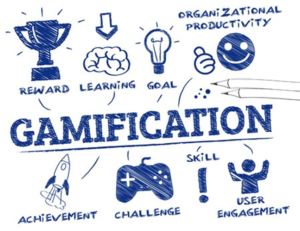
Not all games mimic reality, but all of them have elements in common with the everyday grind. Whether you’re playing an adventure-laden game, or a game of chess, you will find that hard work is always rewarded. Much the same is true in real life. The daily chores that we undertake are geared towards achieving incremental goals along the way. A classic example is World of Warcraft. In this game, players are characters with unique skills, attributes and abilities. Players must use their abilities to acquire the necessary resources to advance to higher levels of the game.
Remember that during gameplay, it is common to lock horns with other players.
When you’re looking to raise your game, you need to be assertive with other players around you. For example, Nicolau Villa-Lobos is a poker star from Brazil who has won himself over $1 million. In his game theory lexicon, he believes that all players should choose carefully which players they will go up against. The reason he says this is that successful bluffs are only possible if you know the type of person you’re playing against. This thinking works in poker games as well as it works in real life situations. Never underestimate your opponent in a game, or in reality. It is often those folks whom we least expect to hurt us who do.
Outcomes-based Action with Video Games

If this all sounds familiar, it is. We do what we need to do to get ahead in real life, and in the gaming world. Video games are not necessarily created to teach us anything about life. Some of them do, and they are effective at it when they do. Many such examples abound, including games like The Sims. We’ve already mentioned games like World of Warcraft – created by Blizzard – but there are so many other terrific games out there too.
When we play video games, it is our decisions that generate outcomes that allow us to advance to higher levels. Sure, most games are confined by a range of potential outcomes, whereas in real life there are endless possibilities. Games have the potential to explore many possibilities based on decision-making processes. With gaming, luck is largely responsible for the outcomes we see. As we move through a game, we will soon realize whether we made the right decisions. If we were mistaken in our decision-making process, we get to try all over again. In real life, this is not always possible. Reality is restricted by things like gravity, and the fragility of life itself. We cannot come back from the dead, and we cannot levitate over raging torrents of molten lava.
If Life Is a Game Then Video Games Reflect Life?

With video games, we always need to be on our toes. This means that we need to make educated decisions on the fly and take executive control of our own lives. There is a school of thought which pushes the fact that everything is taking place while we are thinking about taking decisions. In other words, life and time are passing us by while we are in between here and there. We cannot stop the inexorable passage of time while we are advancing through different levels in a video game. Our outcomes are determined by our actions, with a little help from Lady Luck herself.
